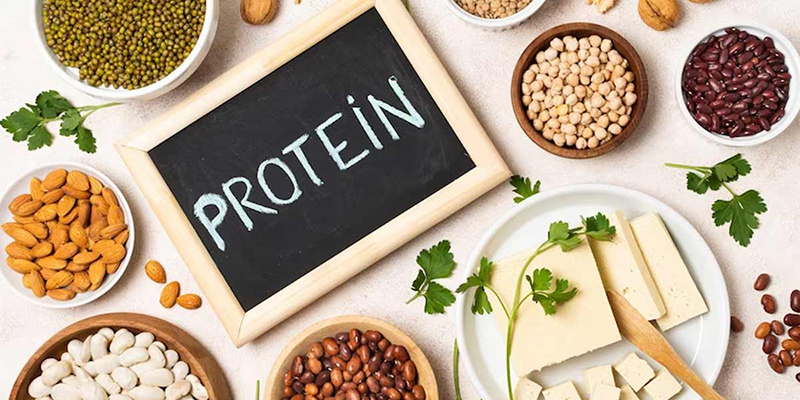What Nutrients Are Used For Energy In The Body
Nutrients are essential components that fuel our bodies, providing the energy needed for daily activities and overall health. Among various types of nutrients, carbohydrates, proteins, and fats play pivotal roles in energy production.
Nutrients are essential components that fuel our bodies, providing the energy needed for daily activities and overall health. Among various types of nutrients, carbohydrates, proteins, and fats play pivotal roles in energy production.

Carbohydrates are the body's immediate energy source, while proteins are crucial for muscle repair and growth. Fats provide sustained energy and support vital bodily functions. By understanding these nutrients, individuals can achieve a balanced diet that maintains optimal energy levels. This article delves into how each nutrient contributes to energy production and wellbeing.
Carbohydrates: The Primary Energy Source
Carbohydrates are the body’s primary energy source, acting as the fuel for all bodily functions. Upon consumption, carbohydrates are broken down into glucose, which cells utilize for energy. Below, we explore the different types of carbohydrates, their metabolism, and their overall significance to health.
Types Of Carbohydrates
Simple Carbohydrates: These sugars quickly enter the bloodstream, providing immediate energy. Common sources include:
• Monosaccharides: Glucose, fructose (found in fruits), and galactose.
• Sucrose (table sugar) and lactose (found in milk) are disaccharides.
Complex Carbohydrates: These consist of longer chains of sugar molecules that release energy more slowly, helping maintain stable blood sugar levels. Examples include:
• Starches: Found in grains (rice, bread), legumes, and root vegetables (potatoes).
• Fibre: Although it doesn't provide direct energy, fibre aids digestion and helps stabilize blood sugar levels.
Metabolic Process
When carbohydrates are consumed, the body's digestive system breaks them down into glucose through hydrolysis. Glucose then enters the bloodstream, where insulin facilitates its transport into cells. It can be used for immediate energy or stored as glycogen for future use.
Glycogen Storage
Glycogen is the storage form of glucose, primarily found in muscle tissue and liver. This stored energy is essential for supporting extended physical activities and helping maintain bodily functions during fasting.
• Muscle Glycogen: Serves as energy during exercise, particularly for high-intensity activities.
• Liver Glycogen: Regulates blood sugar levels between meals, ensuring a consistent energy supply.
Recommended Daily Intake
The Dietary Guidelines suggest that 45-65% of total daily calories should come from carbohydrates, translating to 225-325 grams for a standard 2000-calorie diet. Prioritizing unrefined sources, such as whole grains and fruits, can improve energy levels and overall health.
Understanding carbohydrates' important role will promote physical health and enhance energy management, clearly positioning them as a fundamental component of a balanced diet.
Fats: The Fuel For Endurance
Dietary fats emerge as a critical alternative energy source for fueling the body during extended physical activity. Unlike carbohydrates, which the body often favours for quick energy bursts, fats provide a more sustained release of energy, which is especially important for endurance athletes and long-duration exercises.
Dietary fats are classified into three primary types: saturated, unsaturated, and trans. Saturated fats, commonly found in animal products and certain plant oils, can elevate cholesterol levels and lead to heart disease when consumed excessively. Unsaturated fats, such as monounsaturated and polyunsaturated fats found in olive oil, nuts, and fish, are considered heart-healthy and beneficial for cardiovascular health. Conversely, trans fats, typically found in processed foods, increase the risk of chronic diseases and should be avoided whenever possible.
Fats undergo metabolism by breaking down fatty acids to release energy. During low to moderate-intensity exercise, the body prefers to oxidize fat as its primary energy source. This begins when triglycerides in fat cells are broken down into glycerol and free fatty acids, which can be oxidized within the mitochondria of cells. During prolonged activity, especially when carbohydrate stores are depleted, the liver converts fatty acids into ketones, an efficient fuel source for the brain and muscles.
Including healthy sources of dietary fats, such as avocados, nuts, seeds, and fatty fish, can enhance the overall benefits of a balanced diet. These nutrient-rich foods provide essential fatty acids, vitamins, and antioxidants for maintaining overall health. Embracing healthy fats allows individuals to tap into a powerful energy source that effectively fuels endurance activities while promoting long-term wellness.
Proteins: The Energy Backup
Proteins are pivotal in energy metabolism, yet they are primarily intended for muscle repair and growth rather than as a principal energy source. However, during intense exercise or periods of fasting, the body may resort to using proteins for energy. In such scenarios, muscle tissue is broken down, releasing amino acids into the bloodstream for energy use.

These amino acids can undergo gluconeogenesis, a process wherein they are converted into glucose, thus supplying energy when carbohydrate reserves are low. This process becomes vital during extended fasting or rigorous workouts as the body strives to maintain energy levels. Although proteins can function as an auxiliary energy source, reliance on them for energy has drawbacks, including muscle loss and compromised bodily functions.
Thus, while proteins can be mobilized for energy in certain circumstances, it is crucial to emphasize their primary purpose of supporting tissue repair and growth. A balanced diet should prioritize carbohydrates and fats for energy production, allowing proteins to fulfil their essential roles without being diverted from their primary functions.
Micronutrients: Supporting Energy Production
Micronutrients, particularly vitamins and minerals, play an integral role in energy production within the body. B vitamins, including B1 (thiamine), B2 (riboflavin), B3 (niacin), B5 (pantothenic acid), B6, B7 (biotin), B9 (folate), and B12, are essential in converting food into energy and facilitate various metabolic processes. Additionally, minerals like magnesium are vital for activating enzymes involved in energy metabolism. Staying properly hydrated is also crucial, as water aids in nutrient transportation and biochemical reactions, ensuring energy levels remain stable and efficient. A thorough intake of these micronutrients fosters optimal energy production and enhances overall vitality.
Empowering Your Energy Through Nutrition
We have explored the crucial roles of carbohydrates, fats, proteins, and micronutrients in the body's energy production processes. These nutrient types work symbiotically to fuel daily activities and sustain overall health. Maintaining a balanced diet rich in these nutrients is essential for keeping energy levels at their peak.